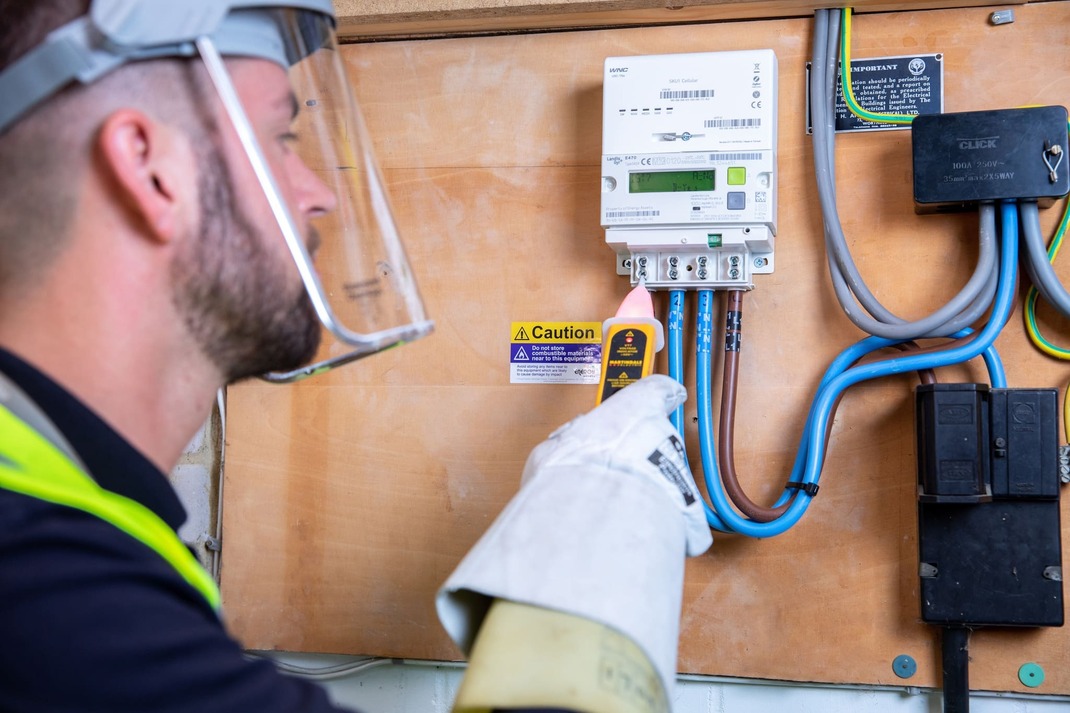The impact of digitalisation: powering progress with SmartestEnergy
Following the release of a new government report on the energy impact of digitalisation, Owen Moulton, Strategic Development Manager explores how the growth of data centres present a vital opportunity for transparent, traceable renewable energy solutions to power this critical and growing sector.

A new report from Europe Economics, commissioned by the Department for Energy Security and Net Zero (DESNZ), explores a key question for the UK's energy future: as the UK becomes more digitalised, will our overall energy consumption increase or decrease?
The report, “Impact of Growth of Data Centres on Energy Consumption,” provides crucial insights for policymakers as they align the growth of digital services and data centres with the nation’s net-zero targets and energy demand plans.
Digital vs. physical energy: a full-chain perspective
The study examined three examples: Video streaming vs. physical media, E-books vs. printed books and AI translation vs. human translation. The report's central finding is that, in most scenarios, digital activities either use less energy or are on par with their physical counterparts, and that whilst digitalisation does introduce new electricity demand, it often displaces energy-intensive physical activities like manufacturing, transportation, and retail.
The report used a "full-chain perspective" to analyse the entire energy lifecycle. For digital services, this included the energy used by data centres, network infrastructure, and end-user devices. For physical services, it accounted for manufacturing, transportation, retail, and office operations. This holistic approach offers a more accurate picture than previous analyses that only focused on individual components or carbon emissions.
A new methodology for an evolving world
The report also introduced a new methodology to isolate the "pure energy impact" of digital delivery. In comparing digital and physical services whilst holding the service's delivery constant, the study could remove confounding effects, such as increased consumption due to lower costs or economic growth. This in turn provides a robust foundation for future policy and forecasting, allowing policymakers to truly understand the energy implications of a digitalised economy.
This approach is especially important given the rapid growth of data centres. Designated as Critical National Infrastructure, data centres are the backbone of digital services, with their energy consumption rapidly increasing. The government is trying to understand how this growth affects grid demand, and the report helps shape the narrative of digitalisation as a cleaner, more efficient pathway.
The role of renewable energy
Even if digitalisation reduces overall energy consumption, the rising demand from data centres still needs to be met. This is where renewable energy becomes a vital part of the solution, because whilst energy efficiency is important for achieving net zero goals, what truly matters is where the electricity comes from.
The report's findings present a major opportunity the renewable energy companies driving positive change in the digital sector. As data centres fall under increased scrutiny for their sustainability credentials, there will be a growing demand for transparent, renewable power from clients and stakeholders. This is where products like Traceable Renewable Supply and robust Corporate Power Purchase Agreements (CPPAs) become essential tools. These solutions leverage technology that simplifies the complex process of proving renewable energy usage, reinforcing that renewable electricity is what makes digitalisation truly sustainable.
In enabling customers to trace their energy back to specific renewable sources on a half-hourly basis, our Traceable Renewable Supply product goes beyond standard renewable certificates to provide unprecedented transparency. Similarly, a CPPA allows a business to make a long-term renewable energy commitment with a generator, providing price certainty and helping to finance new renewable projects, thereby creating additionality.
Looking forward
As government policy begins to favour digital industries, with potential grid priority for data centres, it is crucial to monitor how these incentives align with renewable energy offerings. This strategic alignment can create opportunities to provide tailored renewable products that meet the specific needs of this critical and growing sector, helping to build a more sustainable future and empower a greener generation.

Want to learn more about Traceable Renewable Supply?
We understand the complexity of navigating the journey to net zero and that confidence and traceability of your renewable power is key for businesses when reporting net zero carbon emissions.


